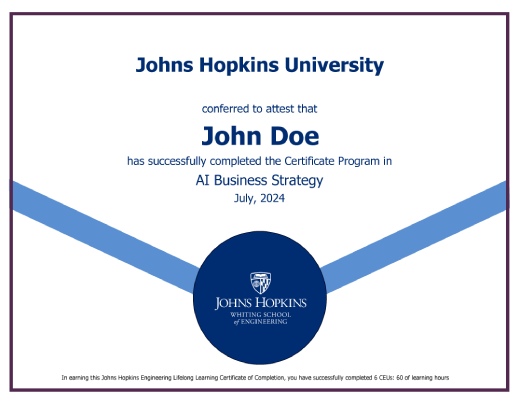AI is Transforming Industries and Creating a High Demand for Skilled Professionals
Artificial Intelligence (AI) is revolutionizing industries globally, with businesses increasingly adopting AI to enhance products, automate tasks, and drive innovation. According to a McKinsey Global Institute report, AI could add up to $13 trillion to the global economy by 2030. This massive growth underscores the urgent need for professionals who can strategically harness AI to create business value.
AI Strategy Skills are Essential for Future Leaders
As AI becomes integral to business strategy, there is a growing demand for leaders who can guide AI-driven transformations. Whether you're a project manager, engineering manager, or business leader, having a strong foundation in AI strategy is becoming essential to remain competitive and drive organizational success.
The AI Talent Gap Presents Lucrative Opportunities
With the rapid adoption of AI, there is a significant shortage of skilled professionals who can manage and implement AI projects. This talent gap presents lucrative career opportunities for those who upskill in AI strategy, making this an ideal time to enter the field.



















